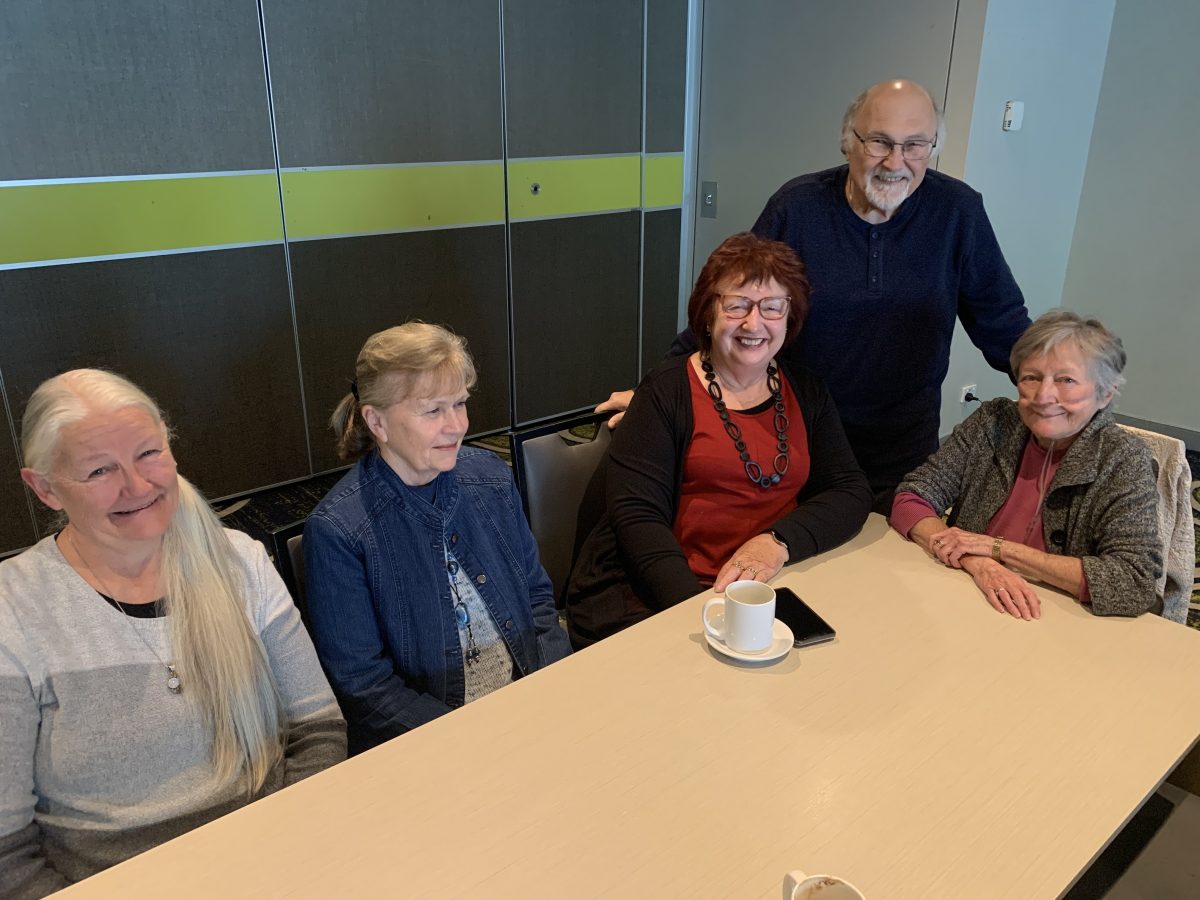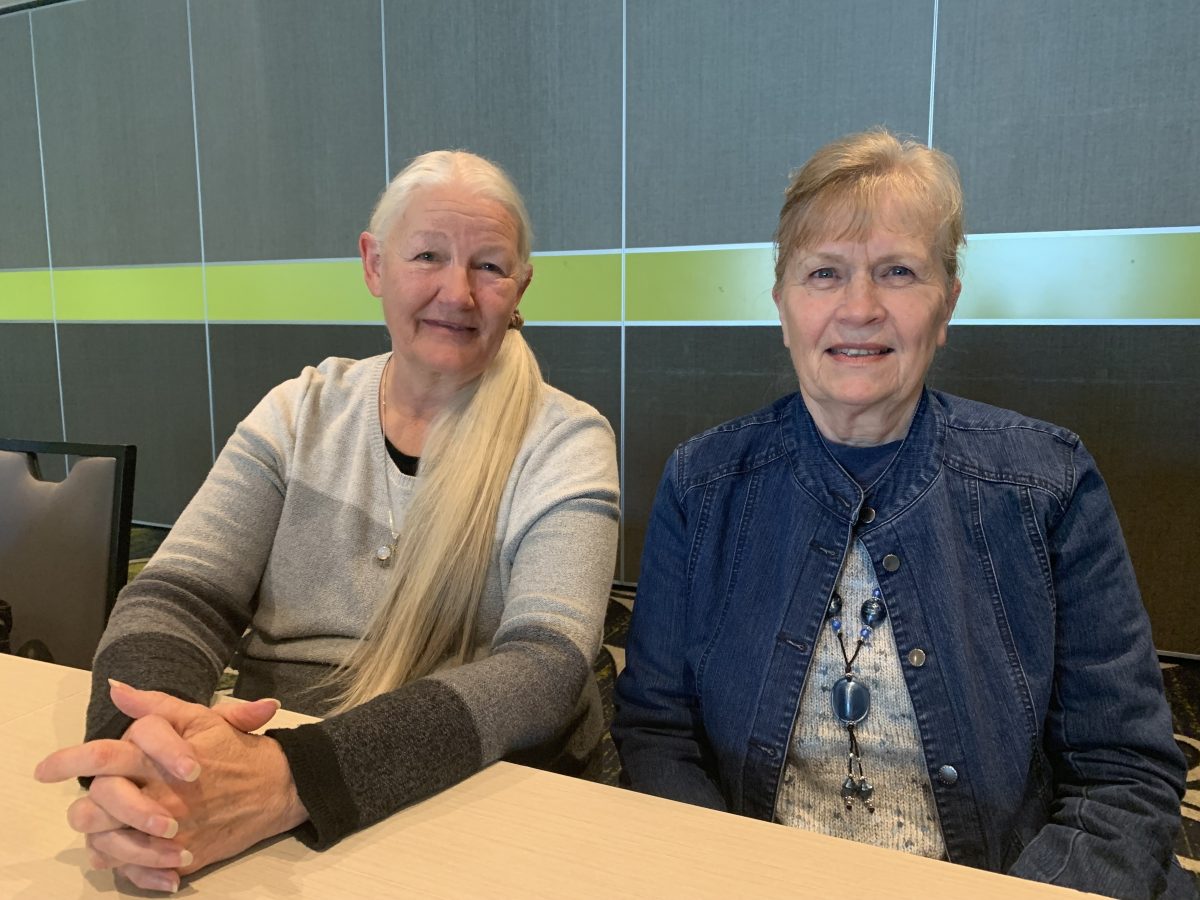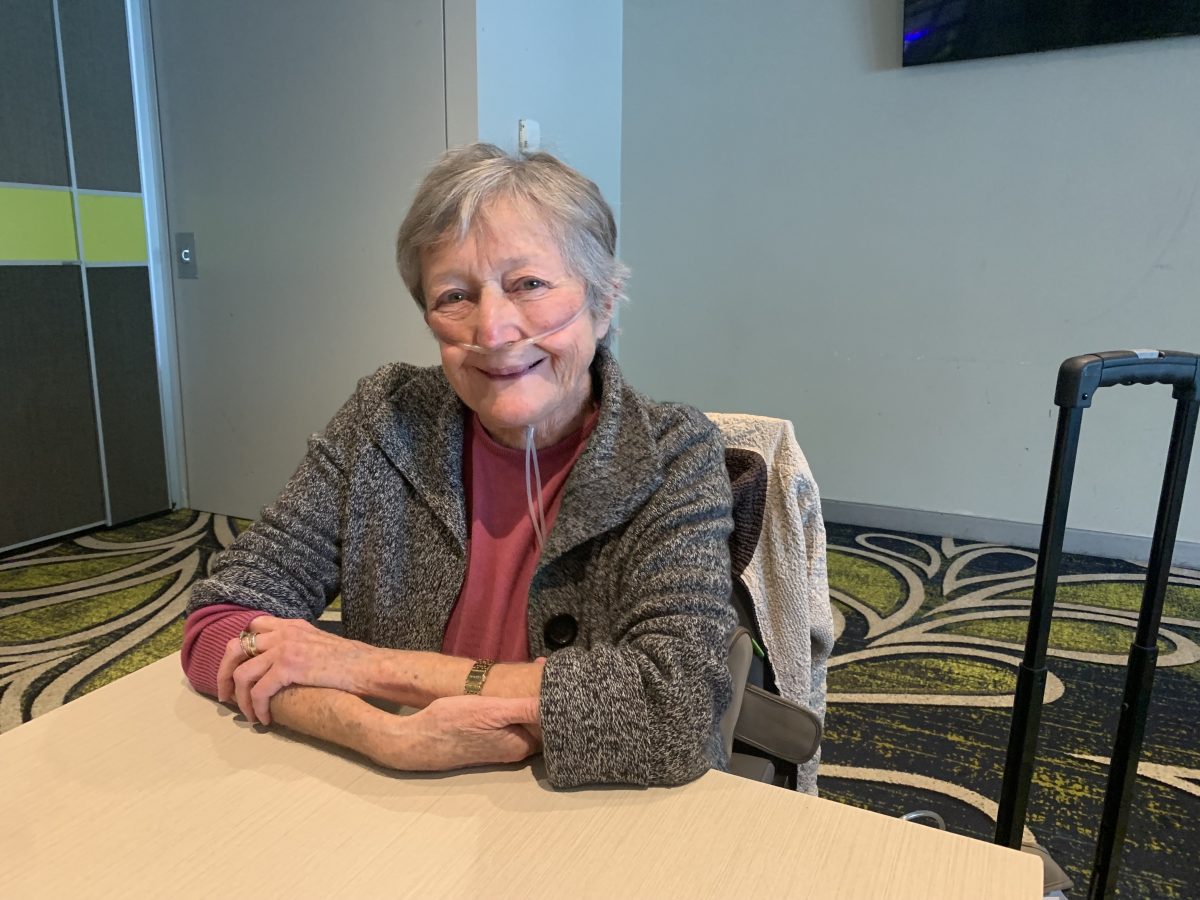
The Canberra Lung Life Support group meets every second Thursday of the month at the Weston Creek Labor Club in Stirling. Photo: James Day.
Often misunderstood or disregarded, people with Chronic Obstructive Pulmonary Disease (COPD) find every day a battle – to not just get out of the house, but also to face a society that can be less than sympathetic. Fortunately, all over the country there are a network of support groups for people with COPD, and Canberra’s own is always looking for more.
The group of 13 people was formed in 1998 and it has now grown to 52 members across the Territory.
Along with monthly meetings, social catch-ups and a newsletter, the group regularly organises events with speakers from the medical field, aged care and other experts who can help members understand their diagnosis.
“There’s a huge amount of information and everyone has different experiences, but it’s also crucial to know where it’s best to get the right treatment, Marina Siemionow, co-ordinator of Canberra’s Lung Life Support Group, said.
“It’s our way of sharing the knowledge so that members of the COPD community know how to navigate the medical system together.”

Marina and Valentino (Val) Siemionow are one of the original couples who began the group over 20 years ago. Photo: James Day.
The group has provided its members with vital support and knowledge that can help them manage their condition.
Karen Anable, one of the group’s members, said she spent the first four years after her diagnosis just getting prescriptions. However, after joining the group, Karen was put in contact with a doctor specialising in COPD, who she says “is like no other I’ve met in nearly 70 years”.
While COPD is categorised as a common lung condition, the way it affects its victims can be complex and varied. According to Lung Foundation Australia, around one in 13 Australians aged 40 and over go through the motions with this disease, and only half are even aware of it.
Professor Christine Jenkins, an expert on respiratory illnesses and former chair of Lung Foundation Australia, says the disease is particularly dangerous as there are so few early warning signs.
“One of the issues is that unfortunately, neither the patients nor the GPs necessarily recognise the warning signs when they’re there.
“Early symptoms could be persistent chest infections after a simple cold; respiratory symptoms like a cough, sputum, or some degree of breathlessness; along with chest tightness that although irregular, often results in the person getting a basic chest X-ray from their GP,” Prof Jenkins said.

Karen Anable (left) and Chris Gray (right) are some of the more recent entrants to the group, but now see it as their ‘social rock’. Photo: James Day.
The causes of lung degradation happen over a number of decades and can vary from exposure to noxious gases, tobacco smoke, or a variety of other respiratory infections.
Prof Jenkins noted that people are often not aware they have severe damage because our lungs have a lot of reserve power. As a result, someone can lose more than 50% of their lung functioning before a problem like breathlessness even presents itself.
Along with the symptoms, there’s often also a stigma or a sense of shame, as Prof Jenkins explains.
“Then there’s this profound stigma attached if you’ve been a smoker, which leads victims to think that the symptoms are their own fault.
“In spite of the fact that many people diagnosed have given up a long time ago in their teens, and the science showing this substance [nicotine] to be more addictive than opiates.”

Helen Cotter joins every meeting by jumping in the group’s carpool, which helps members get to their events. Photo: James Day.
Although not contagious, COPD can make victims feel like an outcast. This keeps them inside as a result of the overwhelming depression and anxiety that comes with the condition.
Much of the beneficial work being done by Canberra’s support group is helping their members out of this spiral, by getting them together with others who understand how difficult it can be.
Some members also have accessibility needs; one way the group helps to address this is by offering a carpool service to help members attend events.
“Parking is a big thing, because people like us are so restricted in how far we can go,” says Helen Cotter, another member of the group.
“I also have a difficult time explaining to people that I have to drag around an oxygen tank constantly, which makes something as simple as a trip to lunch feel like I’m planning D-Day.”
A major support that has kept members coming back for every meeting is the group’s emphasis on improving their quality of life, which is something that most upon entering believe to be impossible.
Member Chris Gray says that doctors often fail to direct patients towards physios and other exercise specialists who understand how to provide long-term therapeutic recovery for people diagnosed with COPD.
Since joining the group, Chris says the support has been monumental in getting her and her husband back up and active.
“My husband was diagnosed with asbestosis 20 years ago and he was bad. He’d buy groceries and would just be heaving.
“Yet now since I’ve started exercising every day with him, he’s out of his seat and living a quality of life that he hasn’t experienced in decades.”
To find out more information about COPD, visit the Lung Foundation Australia website.
For more details on the Canberra Lung Life Support Group see its Facebook group. The group’s coordinator Marina can also be contacted by phone (042 962 9180) and email (lung.life1@hotmail.com) for any other enquiries.













